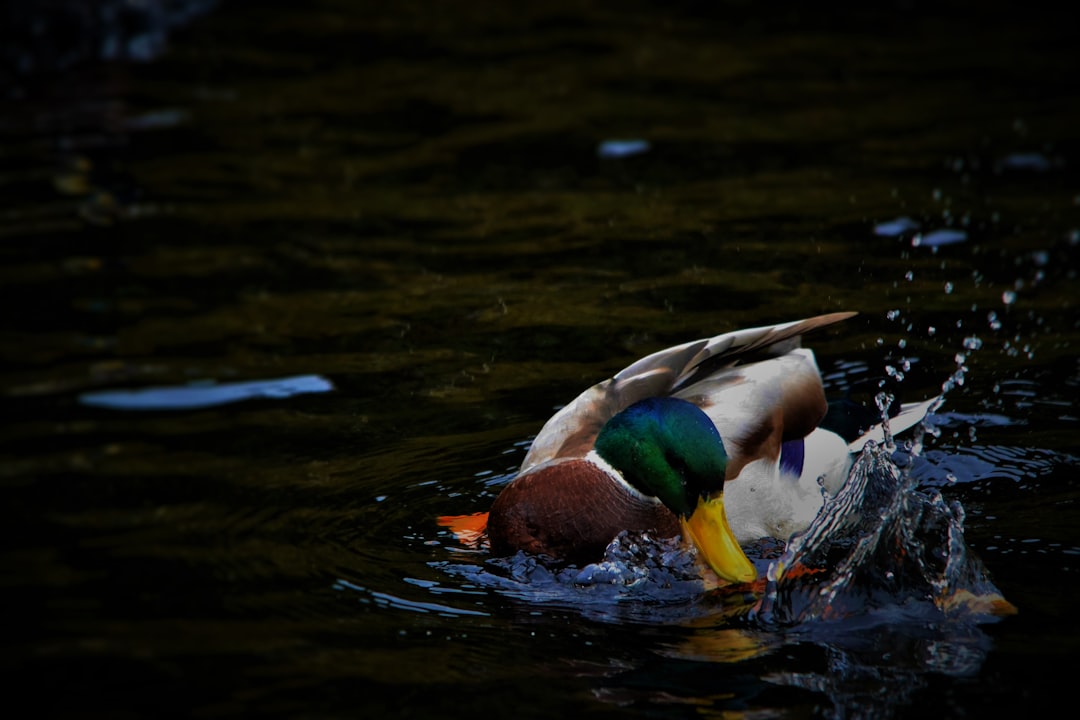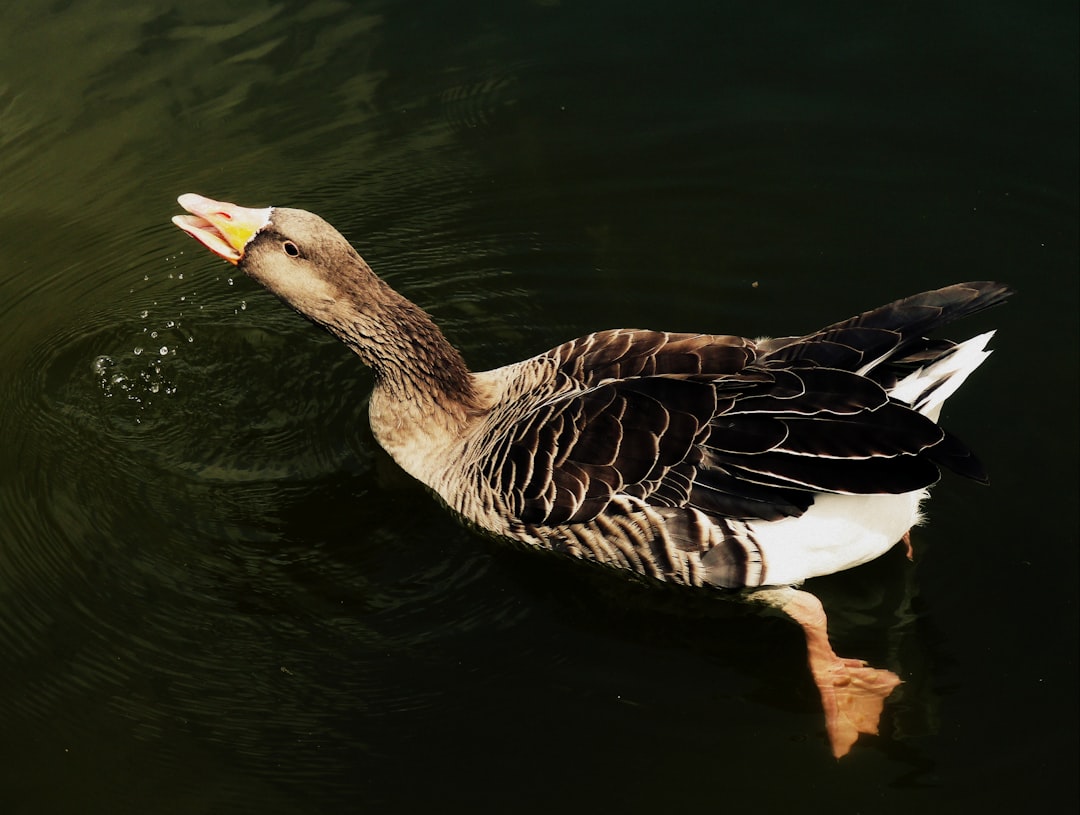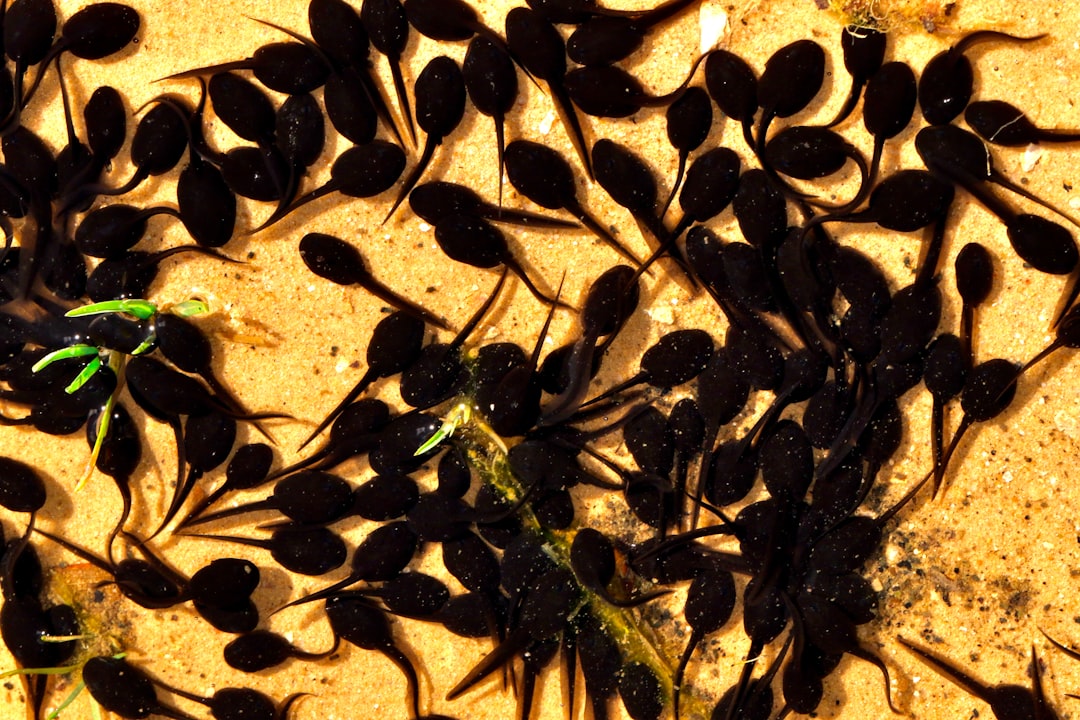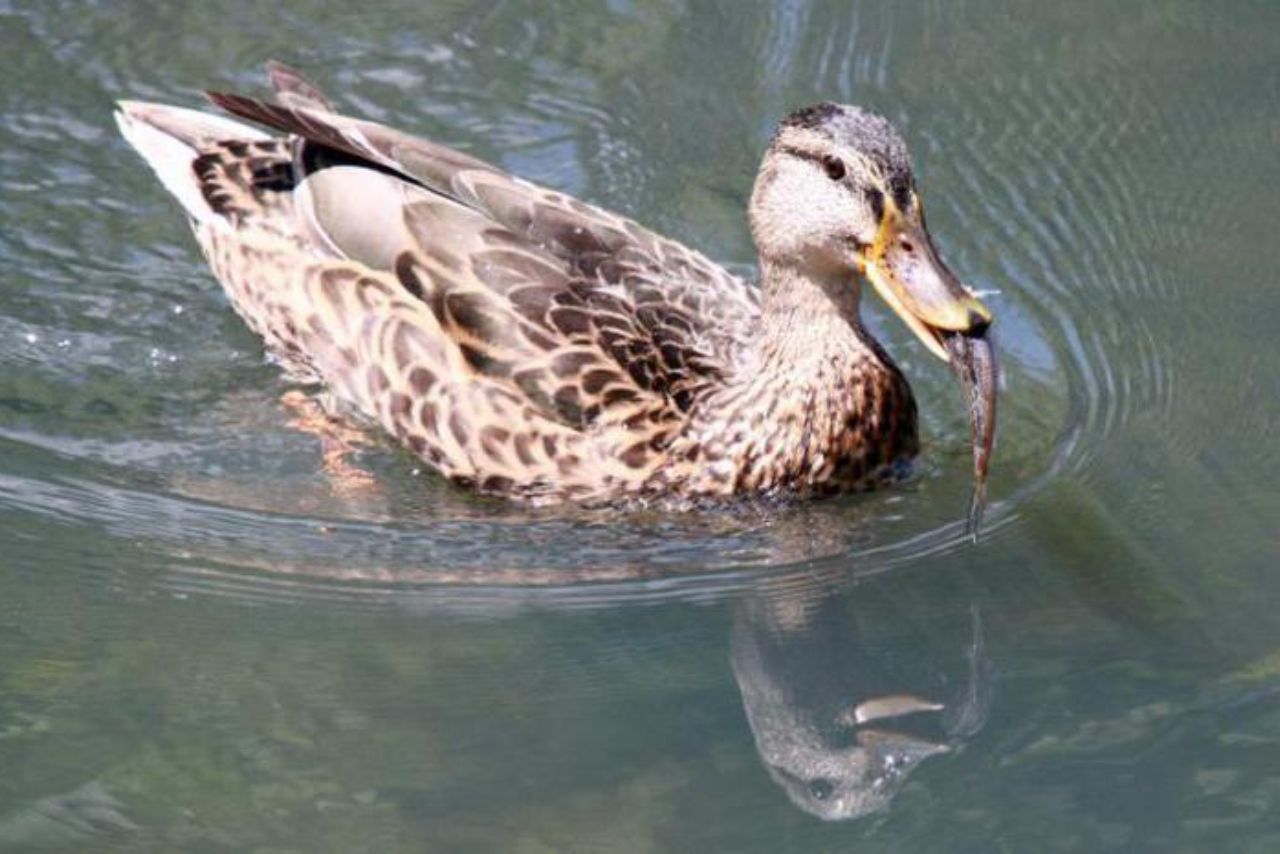Yes, Ducks eat tadpoles in their diet preferably. Ducks are one of the most common birds found near ponds and lakes.
These waterfowl are known for their love of swimming and diving into the water for food. One of the questions that often come up is whether ducks eat tadpoles.
It’s important to know the answer to this question if you have a pond or lake in your backyard and want to maintain a healthy ecosystem. So, Do Ducks Eat Tadpoles?
In this article, we will explore whether ducks eat tadpoles and the impact it has on the environment.
Ducks are omnivores and will eat a variety of foods, including tadpoles.
However, the extent to which ducks eat tadpoles and the impact it has on the ecosystem depends on various factors such as the size of the pond, the number of ducks present, and the availability of other food sources.
While some tadpole consumption by ducks is natural, excessive consumption can lead to a decline in the tadpole population and disrupt the balance of the ecosystem.
What Is Tadpole?
Tadpoles are the larval stage of frogs and toads. They hatch from eggs laid in water and undergo a metamorphosis process as they grow into adult amphibians.
During this process, tadpoles feed on algae, aquatic plants, and small invertebrates.
They play a crucial role in the ecosystem by consuming excess organic matter, which helps to maintain water quality.
Relationship Between Ducks And Tadpoles
While ducks are known to eat tadpoles, they also play a role in controlling the population of other aquatic creatures such as snails and insects that may be harmful to the ecosystem.
Therefore, it’s important to maintain a healthy and diverse environment for both ducks and tadpoles.
Providing nesting boxes for ducks can also help reduce their impact on tadpole populations by encouraging them to lay their eggs away from the pond.
By understanding the relationship between ducks and tadpoles, we can take necessary measures to ensure a thriving ecosystem for all aquatic creatures.
Omnivores Behavior Of Ducks For Tadpoles
As omnivores, ducks have a varied diet that includes both plants and animals. While tadpoles are a potential food source for ducks, they also consume other aquatic creatures such as fish, snails, and insects.
Ducks also feed on submerged vegetation and algae, which helps to control their growth and maintain water quality.
It’s important to provide alternative food sources for ducks to prevent excessive consumption of tadpoles and maintain the balance of the ecosystem.
While ducks do eat tadpoles, their impact on the population depends on various factors such as pond size and availability of other food sources.
Tadpoles Are A Common Food Source For Ducks
Tadpoles are a common food source for ducks, but it’s important to remember that they also play a crucial role in maintaining the ecosystem.
By consuming excess organic matter and controlling algae growth, tadpoles help to maintain water quality and support the growth of other aquatic creatures.
Therefore, while it’s natural for ducks to eat tadpoles, excessive consumption can have a negative impact on the ecosystem.
It’s important to strike a balance between predator and prey by providing alternative food sources for ducks and monitoring their behavior near the pond.
To Eat Tadpoles Is Prefer Food For Ducks Or Not
Whether or not to eat tadpoles is a preference for ducks, but it’s important to understand their impact on the ecosystem.

Excessive consumption of tadpoles can lead to a decline in their population and disrupt the balance of the ecosystem.
Therefore, it’s important to provide alternative food sources for ducks while also encouraging the growth and development of tadpoles.
In addition, it’s crucial to maintain a healthy environment for both ducks and tadpoles by controlling the growth of algae and providing adequate shelter and nesting areas.
The Benefits of Ducks Eating Tadpoles
Here are the benefits of ducks eating tadpoles:
1. Natural pest control:
Tadpoles are considered pests in some bodies of water, as they can overpopulate and disturb the ecosystem. Ducks can help control their population by eating them.
2. Nutritious food:
Tadpoles are rich in protein and nutrients, making them a healthy food source for ducks.
3. Improved water quality:
Tadpoles feed on algae and other organic matter in the water, which can cause murkiness and foul odors. By eating them, ducks help keep the water clear and clean.
4. Balanced ecosystem:
By controlling the tadpole population, ducks help maintain a balanced ecosystem where all species can thrive.
5. Fun to watch:
If you’re a birdwatcher or nature enthusiast, watching ducks hunt for tadpoles can be a fun and fascinating activity.
Is There Any Risks In Feeding Tadpoles To Ducks?

If the population of tadpoles declines too much, it can disrupt the food chain and negatively impact other aquatic creatures that rely on them as a food source.
While ducks feeding on tadpoles can have benefits, there are also risks associated with this behavior.
Additionally, if ducks consume tadpoles that have been exposed to pesticides or other pollutants, it can harm the health of the ducks and potentially contaminate their meat.
It’s important to maintain a healthy balance in the ecosystem by providing alternative food sources for ducks and monitoring their behavior near the pond.
Feeding ducks should be done sparingly and with caution to prevent overconsumption of any one food source.
Impacts Of Duck Predation On Tadpole Populations
Studies have shown that duck predation can have a significant impact on tadpole populations, particularly in small bodies of water.
In some cases, the entire population of tadpoles can be consumed within a few days by a group of ducks.
This can lead to a decline in the overall population of amphibians and other aquatic creatures that rely on tadpoles as a food source.
However, it’s important to note that not all duck species consume tadpoles at the same rate or frequency.
Factors such as habitat, seasonality, and competition with other predators can influence their behavior.
Therefore, it’s important to conduct further research on the specific impacts of duck predation on tadpole populations in different environments.
Duck Breeds Hunting Tadpoles
While all duck breeds have a natural instinct to hunt for food, some may be more prone to eating tadpoles than others.
For example, mallards are known to consume tadpoles more frequently than other duck breeds.
Similarly, domestic ducks that have been raised in captivity may not have access to a varied diet and may turn to consuming tadpoles as an alternative food source.
It’s important to observe the behavior of different duck species near ponds or lakes and take necessary measures to prevent overconsumption of tadpoles.
Providing alternative food sources such as insects or plants can help deter ducks from preying on tadpoles.
Do Ducks Eat Tadpoles Spawn?
Yes, ducks may eat tadpole spawn, which are the eggs laid by the adult female frogs.

However, it’s important to note that tadpole spawn is often protected by a jelly-like substance that can make it difficult for predators like ducks to consume.
Additionally, tadpole spawn is not a significant food source for ducks and they may not actively seek it out as a food option.
It’s also worth mentioning that protecting tadpole spawn is crucial for the survival of frog populations.
Tadpoles are an essential part of the food chain and help maintain a healthy ecosystem in bodies of water.
Therefore, it’s important to take necessary measures such as providing adequate habitat and minimizing pollution to ensure their survival.
How Do Tadpoles Avoid Being Caught By Ducks?
Tadpoles have a few strategies to avoid being caught by ducks. One of the most common strategies is to stay close to the bottom of the pond or lake, where they are less visible to predators.
They may also seek shelter in aquatic plants or hide behind rocks and other underwater structures.
Additionally, tadpoles can swim quickly and erratically, making it difficult for ducks to catch them.
Some species of tadpoles also have toxic skin secretions that can deter predators from consuming them.
Finally, tadpoles may also change their behavior based on environmental cues such as changes in light or temperature.
For example, they may be more active during certain times of the day when predators are less likely to be around.
How Do Ducks Eat Tadpoles?
Ducks typically catch tadpoles by using their beaks to grab them from the water.
They may also use their wings to create waves or disturb the surface of the water, making it easier to spot and catch tadpoles. Once caught, ducks will usually swallow tadpoles whole.
While ducks eating tadpoles is a natural behavior, it’s important to monitor their impact on the ecosystem and take necessary measures to maintain a healthy balance between predator and prey.
Is It Safe For Ducks To Eat Tadpoles?
While it’s safe for ducks to eat tadpoles, it’s important to monitor their consumption and take necessary measures to prevent overconsumption.
Overhunting of tadpoles can disrupt the balance of the ecosystem, leading to a decline in both duck and tadpole populations.
Additionally, it’s important to consider potential sources of pollution in bodies of water where ducks and tadpoles coexist.
Polluted water can harm both ducks and tadpoles, making them more susceptible to disease or death.
How Many Tadpoles Can A Duck Eat?
It is generally safe for ducks to eat tadpoles, as they are a natural part of their diet.
However, it’s important to monitor the number of tadpoles being consumed and take necessary measures to prevent overconsumption.
An excessive amount of tadpole consumption can have negative impacts on the ecosystem, such as reducing the population of other aquatic species that rely on tadpoles as a food source.
As for the number of tadpoles a duck can eat, it varies depending on factors such as the size and species of the duck, as well as where they are located.
Generally speaking, ducks will consume a few tadpoles at a time rather than consuming them in large quantities.
Bottom Line:
It’s important to understand the natural behavior of ducks and tadpoles in aquatic ecosystems.
Do Ducks Eat Tadpoles? While ducks may eat tadpoles, it’s not a significant part of their diet and protecting tadpoles and their eggs is crucial for maintaining a healthy ecosystem in bodies of water.
Tadpoles have several strategies for avoiding being caught by predators such as staying close to the bottom of the pond or lake, seeking shelter in aquatic plants or underwater structures, and swimming quickly and erratically.
By taking measures such as providing alternative food sources, protecting habitat, and minimizing pollution, we can help ensure the thriving survival of both ducks and tadpoles in our aquatic ecosystems.
FAQs
Do ducks eat tadpoles?
Yes, ducks do eat tadpoles as they are a natural part of their diet.
Is it safe for ducks to eat tadpoles?
Yes, it’s safe for ducks to eat tadpoles, but it’s important to monitor their consumption and prevent overconsumption.
How many tadpoles can a duck eat?
The number of tadpoles a duck can eat varies depending on factors such as the size and species of the duck and their location.
What can be done to protect tadpoles from ducks?
Protecting their habitat, providing alternative food sources, and minimizing pollution can all help ensure the survival of tadpoles in aquatic ecosystems.




